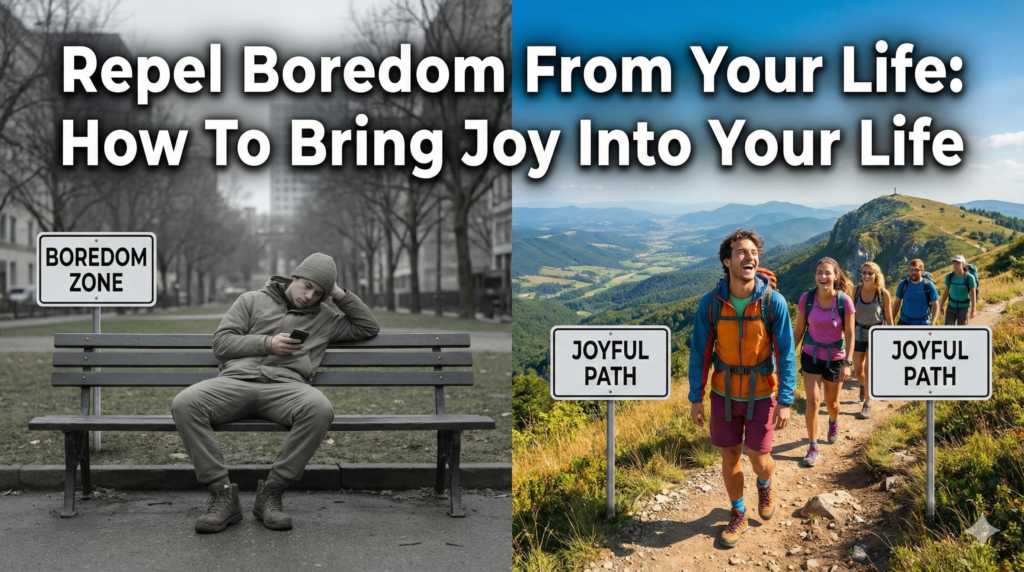Why it often feels like tomorrow demands our attention before today even finishes. We worry about deadlines, financial security, health, and even the “what ifs” that may never happen. But when we spend too much time living in tomorrow’s shadows, we miss the only place peace truly exists in the present.
Being in the present isn’t about avoiding obligations or refusing to make future plans. Rather, it’s about developing the awareness to see what is occurring currently. This balance can decrease excessive thinking, soothe the mind, and provide clarity that the next day can’t offer.
What Does Living in the Moment Actually Mean?
Living in the moment means giving your full attention to the present experience, your thoughts, emotions, and surroundings without being pulled into the regrets of yesterday or the uncertainties of tomorrow. It’s about mindful awareness exercises and intentional presence.
When we are present, simple acts like sipping coffee, listening to music, or watching the sunrise feel fuller, richer, and more meaningful. Instead of rushing to the next task, we allow ourselves to experience life as it unfolds.
How to Stop Worrying About Tomorrow?
When the mind attempts to reign in that which it cannot, it manifests worry. Overthinking tomorrow’s events cannot bring them to our favour yet the barren truth remains: The next day hasn’t come. Accepting that we may not always know what lies ahead can be of greater assistance. There will forever be enigmas in life, and although that may be discomfiting, it allows room for potential.
Try these approaches:
- Focus on five things you see, four you feel, three you hear, two you smell, and one you taste. This brings your attention back to now.
- Speak kindly to yourself, reminding yourself that it’s natural to feel anxious about the future. Instead of judging, offer yourself reassurance.
- Pause and notice your breath, sensations in your body, or the environment around you.
The Benefits of Living in the Moment
The habit of presence can transform mental and emotional well-being. Some of the key benefits include:
- Reduced Overthinking: When you notice your thoughts spiraling, mindfulness for anxiety interrupts the cycle and helps you return to clarity.
- Emotional regulation techniques: Practicing grounding and breathing techniques supports emotional balance, especially during stressful moments.
- Improved Focus: A present mind is a sharper, more productive mind.
- Greater Joy in Simple Things: From conversations to nature walks, being present deepens appreciation.
- Resilience in Uncertainty: By accepting the unknown, you feel less controlled by fear of the future.
How Long Does Mindfulness Take to Work?
Mindfulness is not an overnight cure; it’s a skill built through consistency. Research shows that practicing mindfulness daily for as little as 10 minutes can begin to reduce stress and anxiety within a few weeks.
The key is patience. Think of mindfulness like planting seeds: the more you water them with daily practice, the stronger your presence and peace grow. Over time, the benefits extend beyond calmness, influencing resilience, focus, and emotional well-being.
What’s the Easiest Way to Be Present Right Now?
Presence doesn’t always require long meditation sessions. The easiest way to begin is through micro-practices that anchor your awareness:
- Take three conscious breaths before opening your phone.
- Notice the sensations of your feet touching the ground.
- Fully taste your food without multitasking.
- Pause before answering a message, and notice your emotions.
Is overthinking ruining my peace? What can I do?
Overthinking steals peace by filling your mind with fears of poverty, illness, or disasters that may never happen. It ties you down to imagined futures instead of the reality of now. The Qur’an warns us of this trap:
| “Satan threatens you with poverty and orders you to commit Fahsha [evil deeds, illegal sexual intercourse, sins, etc.], whereas Allah promises you forgiveness from Himself and Bounty.” (Qur’an 2:268) |
This verse shows that constant fear of the future is a whisper of the devil, designed to keep you anxious and distracted.
Conclusion
Peace is never discovered in regrets or fears of the future; it exists only in the now. When a person engages in mindfulness meditation, breaks free from the shackles of perfectionism, and practices grounding exercises to counter anxiety, they pave the way for lucidity, serenity, and delight to flourish.
The richness, significance, and ease of life amplify the moment we forgo chasing the future and embrace the present. Each breath, each charitable deed, and each act of self-kindness is a step towards abundant living. Hence, while grappling with the “what ifs,” take a moment and reflect. Remind yourself: in the future is a bridge that will only be crossed if it arrives, and in the here and now is where tranquility lies.








